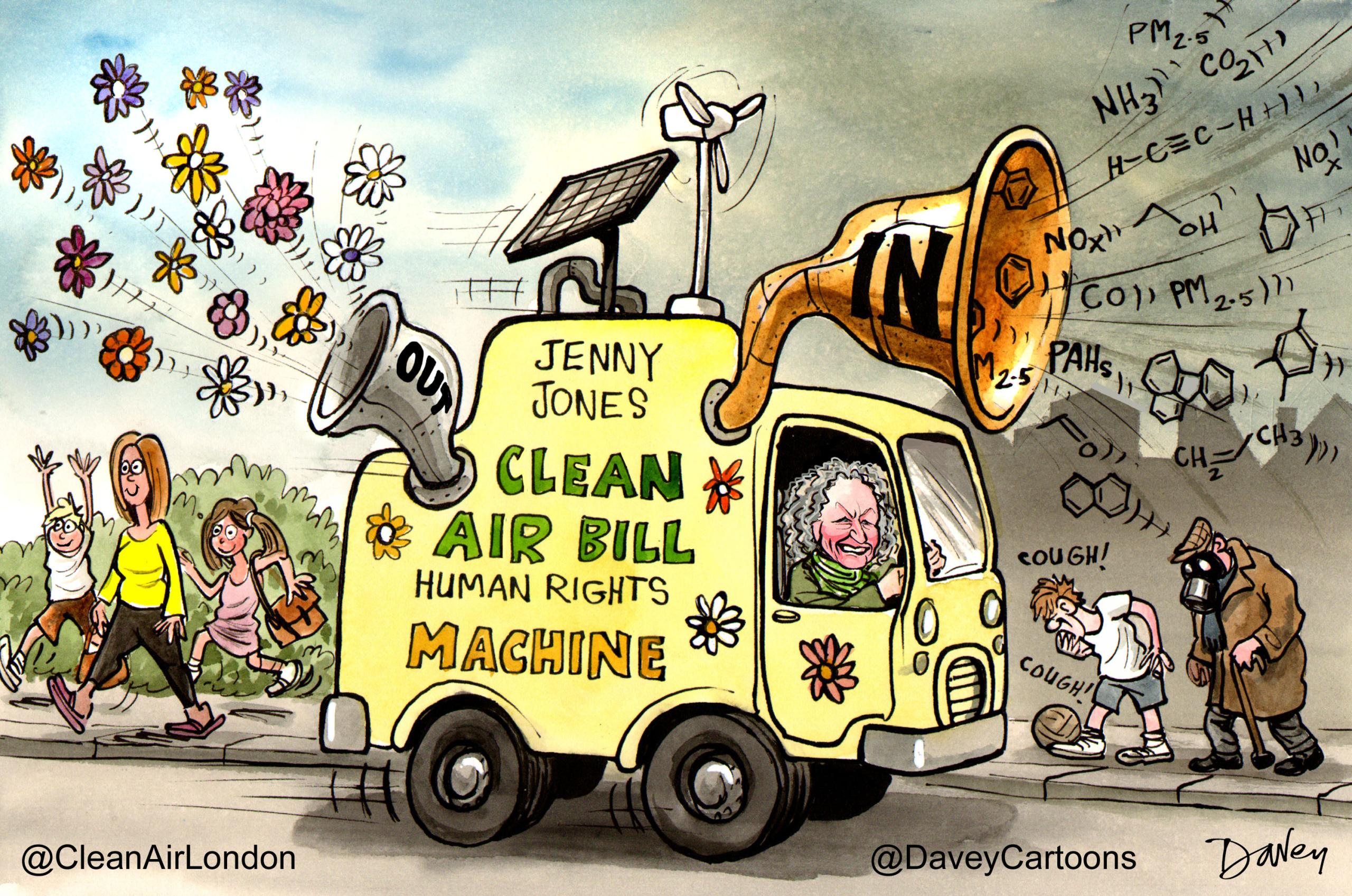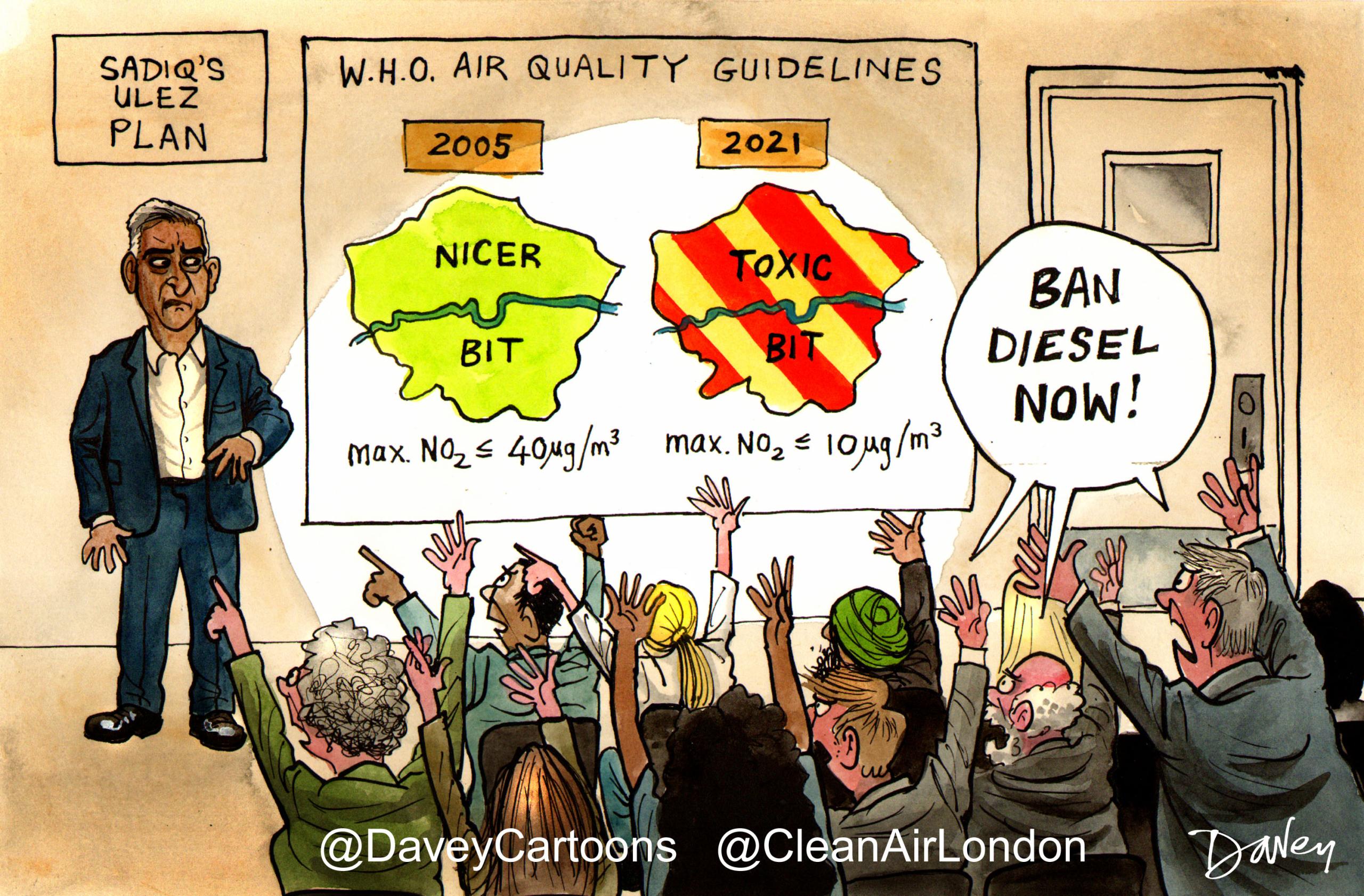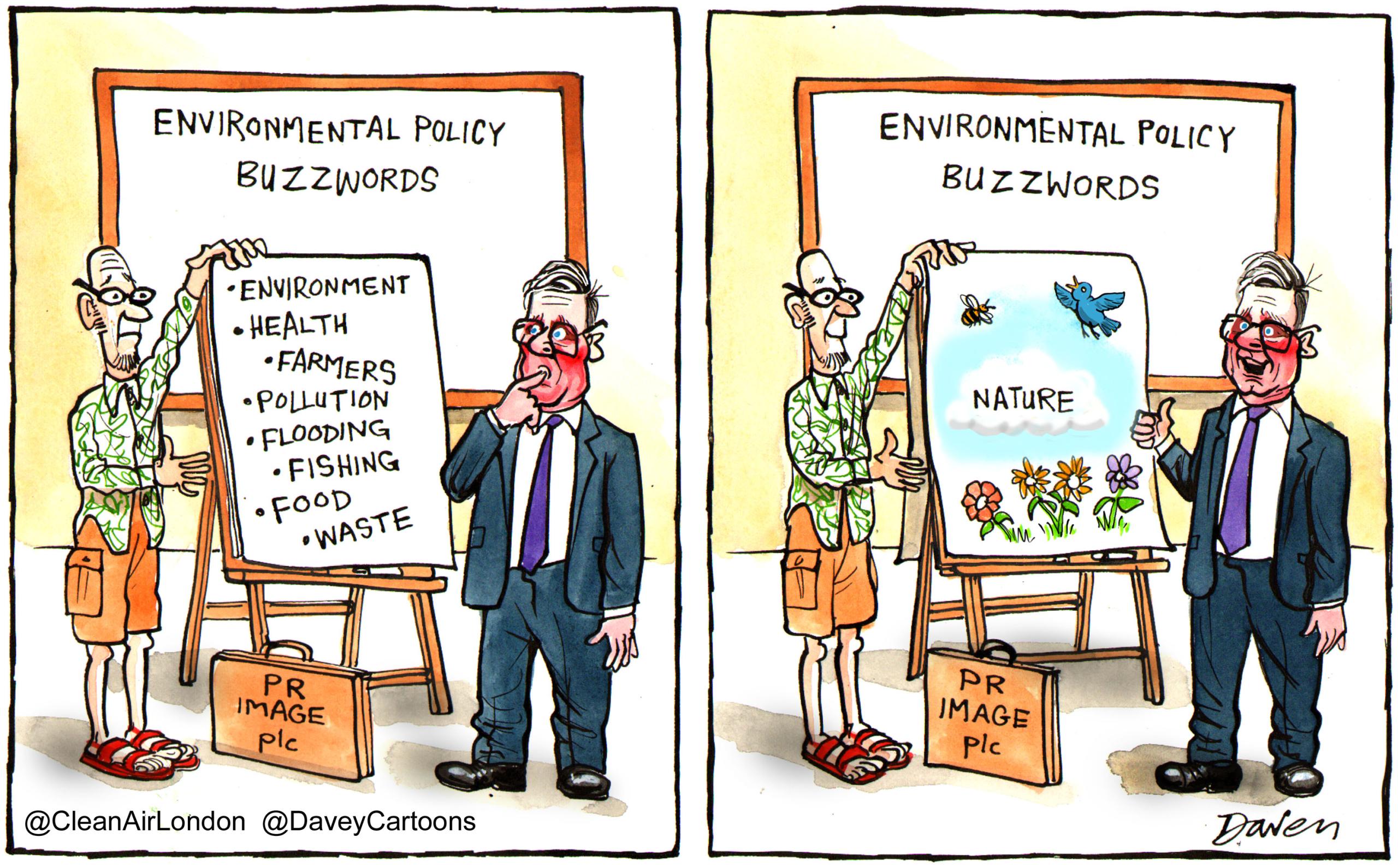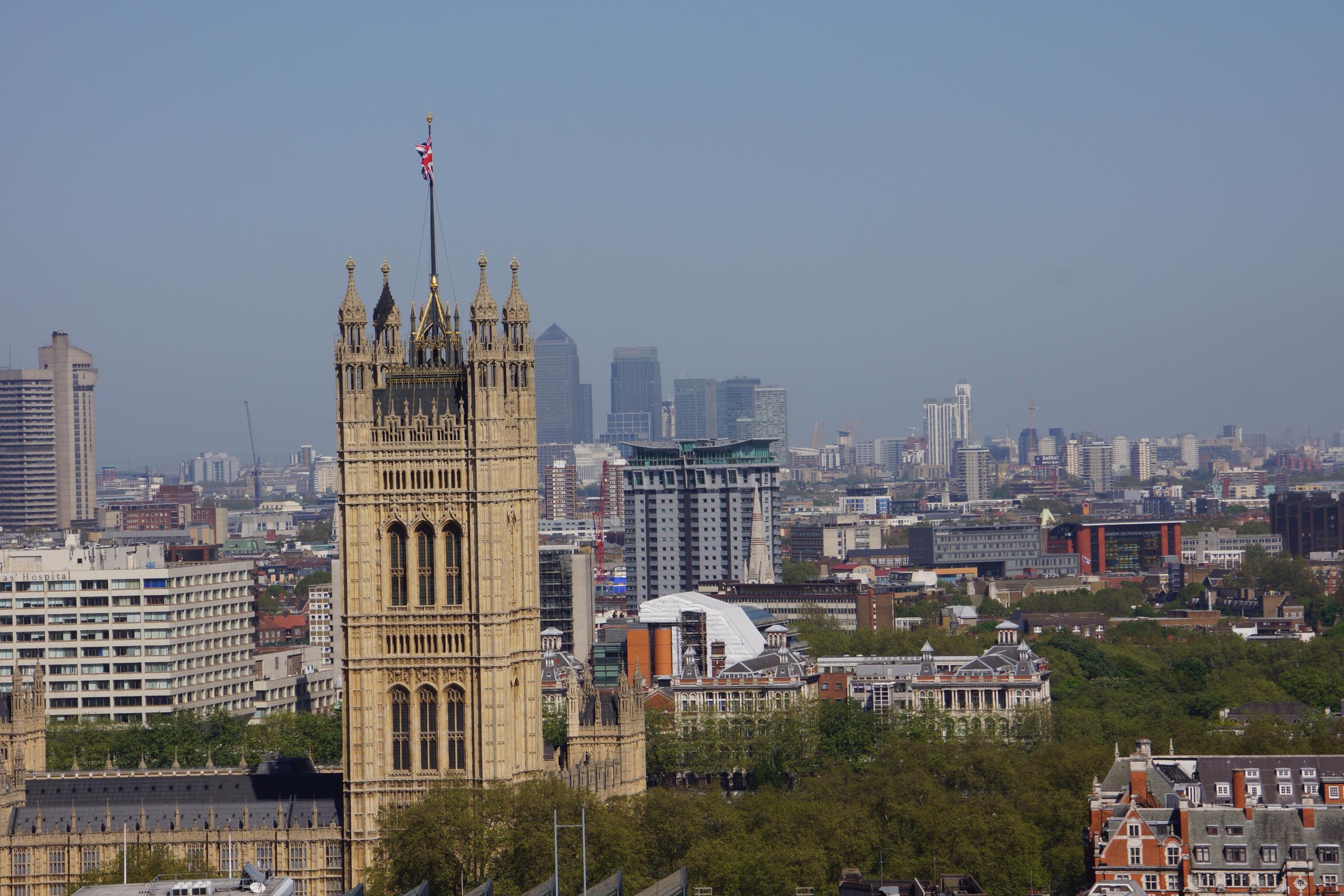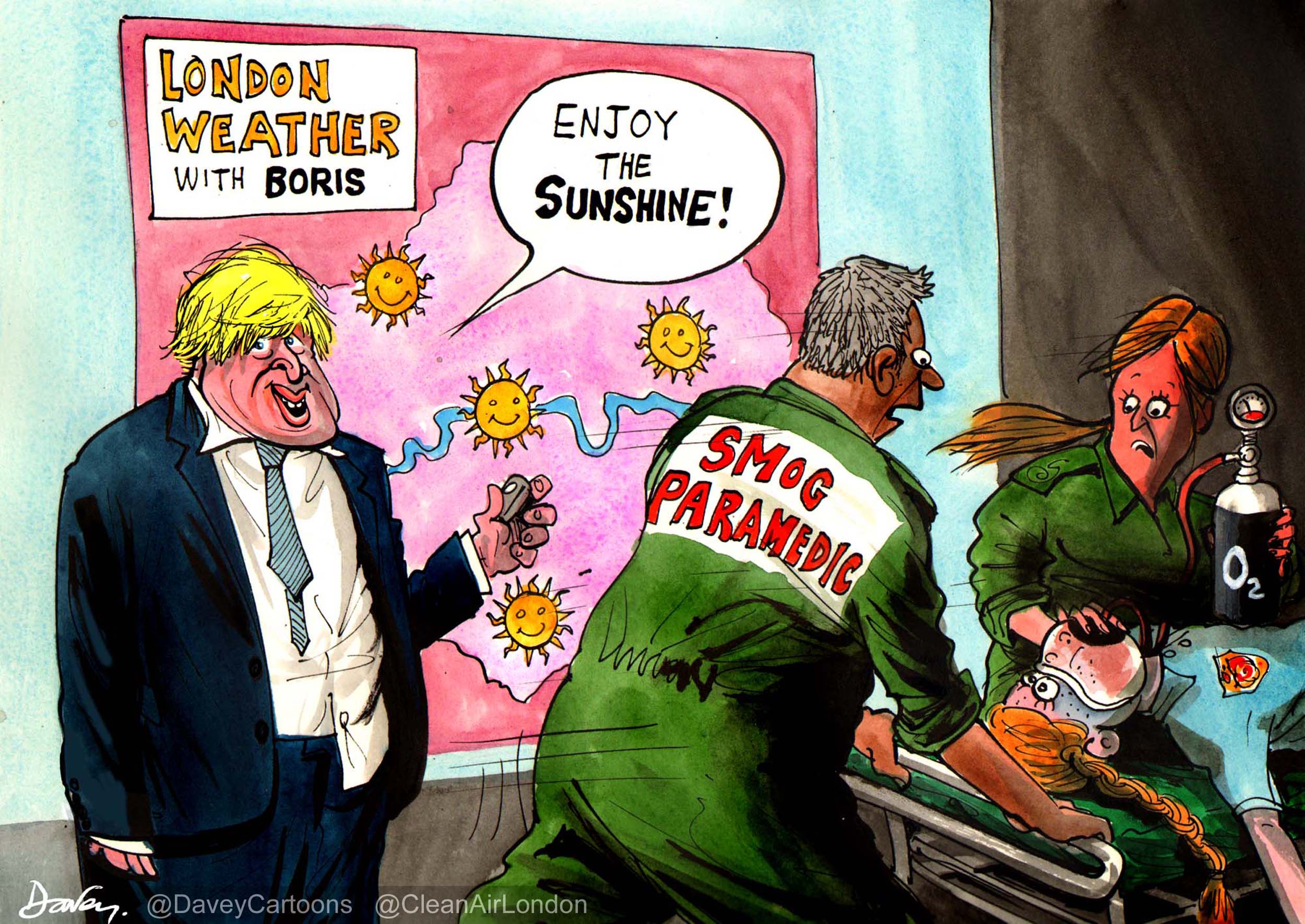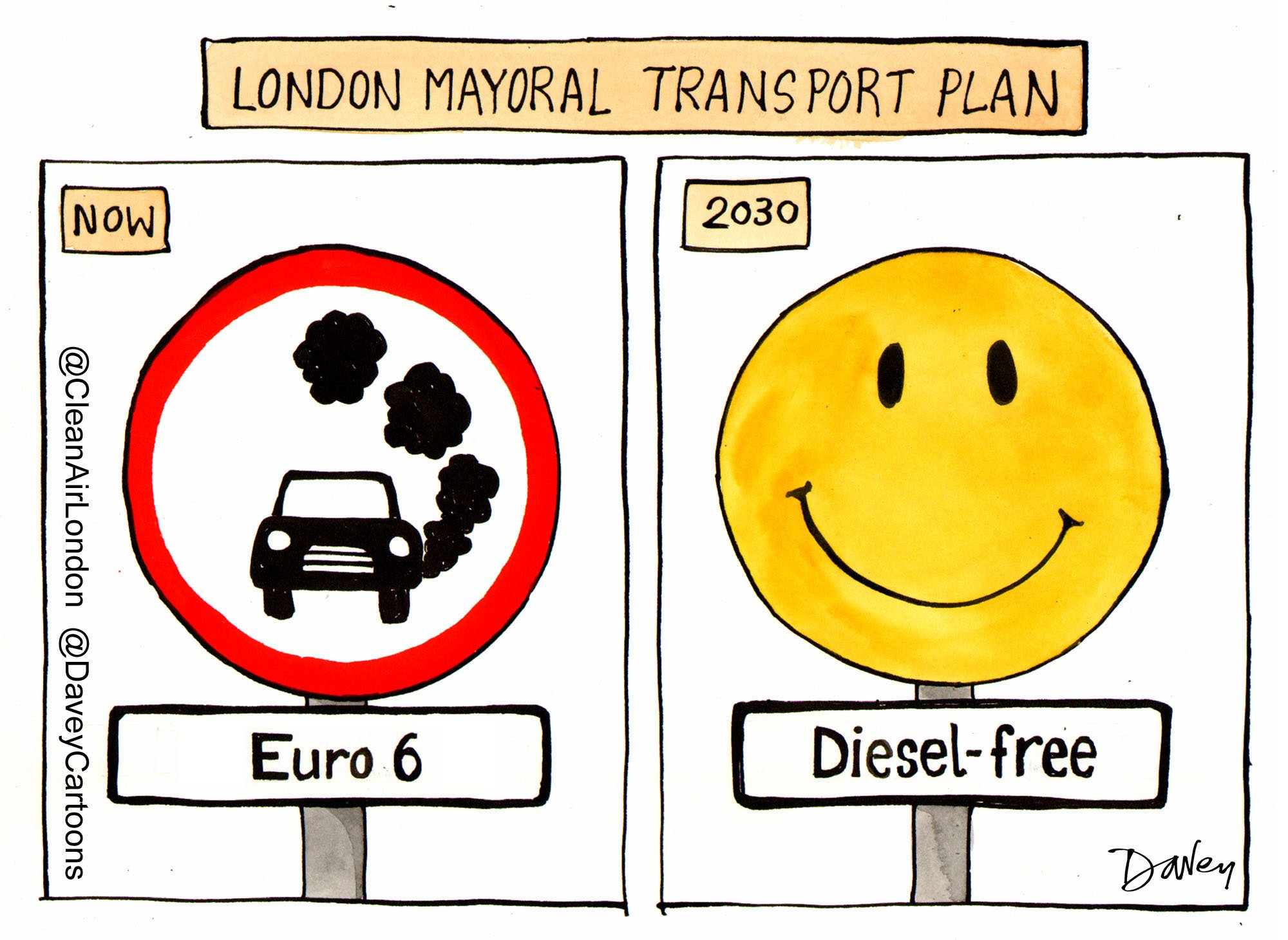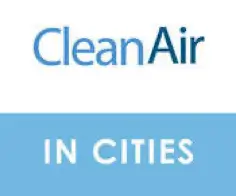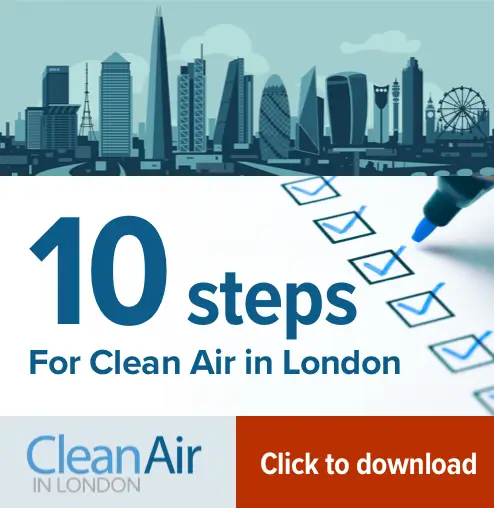Clean Air (Human Rights) Bill
Almost exactly 70 years after the Great Smog killed some 4,000 people in London (5-9 December 1952), Baroness Jones’ Clean Air (Human Rights) Bill (“CAHR Bill”) topped the ballot of Private Members Bills in the House of Lords.
The CAHR Bill would establish the human right to breathe clean air precisely and explicitly in UK law. It would require the Secretary of State to achieve ‘clean air’ throughout England and Wales within five years of the passing of the Act and maintain it thereafter.
Rosamund Adoo Kissi-Debrah has agreed that it should be called Ella’s Law in memory of her daughter Ella Roberta who was the first person to have ‘air pollution’ on her death certificate. Having topped the ballot, the CAHR Bill could become law in the 2022-2023 session of Parliament and before the 10th anniversary of Ella Roberta’s death on 15 February 2023. It would put ‘clean air’ on par with equalities in decision making.
The CAHR Bill follows a ‘One Air’ approach to ‘clean air’ that encompasses the health and environmental impacts of air pollutants and greenhouse gases. It would set limits and targets for each aspect of ‘One Air’ based on the best international standards and scientific advice such as the World Health Organisation’s new air quality guidelines (September 2021). The Environment Agency and Committee on Climate Change would be required to review the pollutants and limits annually and advise the Secretary of State if they need tightening. The standards may only be tightened. Importantly, the CAHR Bill addresses outdoor air where people spend their time and indoor air in new buildings, public transport underground, where health and safety provisions apply and in buildings regularly accessed by members of the public including children.
The CAHR Bill also requires the Secretary of State to assess air pollution in England and Wales and publish and report detailed information about it, including warnings when needed.
In order to ensure independent scrutiny and continuous improvement, the CAHR Bill establishes a Citizens’ Commission for Clean Air (CCCA) which would review annually the Secretary of State’s compliance with the CAHR Bill during the previous calendar year and advise the Secretary of State if any methods should be improved from the start of the subsequent year (which he must implement). The CCCA must also monitor and enforce the right to clean air.
In order to help national and local authorities and others, the CAHR Bill requires new regulations to: enable the sale and use of appliances generating wholly renewable energy; enable energy efficiency improvements to domestic and non-domestic premises that reduce energy use and emissions of carbon dioxide; and restrict the sale and use of combustion appliances that emit pollutants to the air including wood burning stoves. These regulations should immediately update the Clean Air Act 1993 and Ecodesign Regulations for modern fuels and technologies and real world emissions. The CAHR Bill also lists ‘Clean Air Enactments’.
The CAHR Bill would give duties and matching powers and resources to national and local authorities, including the Mayor of London, to achieve clean air within five years. Where the Secretary of State or others have not achieved clean air by this deadline, or otherwise complied with their duties under the CAHR Bill, the CCCA may issue a notice requiring them to comply with their duty, take specific steps in order to achieve compliance and provide written information of the steps taken, or proposed to be taken, for the purpose of complying with their duty. The CCCA may apply to the Court for an order requiring a person to comply. The CAHR Bill would also allow the CCCA to institute or intervene in legal proceedings if they are relevant to the duty to achieve clean air. It lists fundamental environmental principles that must be followed.
The CAHR Bill is designed to ensure annual review to achieve continuity, tightening, greater understanding and enforcement of limits and targets to achieve and maintain clean air, particularly after five years.
Links and resources
1. House of Lords’ Clean Air (Human Rights) Bill webpage and resources
https://www.parliament.uk/business/news/2022/may-2022/lords-private-members-bills-ballot-2022/
https://bills.parliament.uk/bills/3161
https://committees.parliament.uk/publications/23002/documents/168989/default/
https://committees.parliament.uk/publications/22684/documents/166704/default/
CAL 465 DPRR Committee number 7_JJ response published 070722
CAL 465_DPRR Committee number 4_Three points
Second reading (8 July 2022)
https://whatson.parliament.uk/event/cal38978
https://whatson.parliament.uk/lords/2022-07-08/
https://parliamentlive.tv/Event/Index/d6d41cbf-26ae-423a-a6d1-d96301bc879c
Committee Stage (18 November 2022)
https://bills.parliament.uk/bills/3161/stages/16859
Report Stage (28 November 2022)
https://whatson.parliament.uk/lords/2022-11-28/
Third Reading (2 December 2022)
https://whatson.parliament.uk/lords/2022-12-02/
2. Briefing materials
CAHR Bill briefing_Final 101122
3. Inquest touching on the tragic death of Ella Roberta Adoo Kissi-Debrah
https://cleanair.london/hot-topics/ellaslaw/
4. Achieving the WHO’s new air quality guidelines
CAL 458 Response to Defra AQ targets consultation 270622_V2 redacted
CAL 458 AQEG Chairs summary_PM2.5
CAL 269 Letter of clarification from the Commission 190214_Redacted
https://ec.europa.eu/info/publications/fitness-check-eu-ambient-air-quality-directives_en
Q30 – Evidence to the Public Accounts Committee on 27 June 2022
https://committees.parliament.uk/oralevidence/10479/default/
5. Achieving the WHO’s new air quality guideline for fine particles (PM2.5)
CAL 467 Achieving WHO AQGs asap_080822
CAL 467 EIR2022_14127 Defra response 080822_Website
CAL 467 Defra EIR reply 080822_2203150935_2020_PCM_technical_report
CAL 467 Defra EIR reply 080822_Air quality targets_Detailed Evidence report
CAL 467 Defra EIR reply 080822_air_pollution_uk_2020_Compliance_Assessment_Summary_Issue1
CAL 467 Defra EIR reply 080822_Draft NAPCP for consultation
CAL 467 Defra EIR reply 080822_NAPCP Consultation document 2022
https://data.london.gov.uk/dataset/laei-2019—borough-air-quality-data-for-llaqm
https://data.london.gov.uk/dataset/london-atmospheric-emissions-inventory–laei–2019
https://statutoryinstruments.parliament.uk/instrument/lyDUI8eI/timeline/7irRNarw/
6. Clean Air in London articles
https://cleanair.london/hot-topics/new-who-air-quality-guidelines/
7. Climate Change Committee
https://cleanair.london/health/ban-domestic-wood-burning-in-urban-areas/
https://cleanair.london/app/uploads/CAL-405-CCC-letter-to-CAL-June-21.pdf
https://www.theccc.org.uk/2022/06/29/current-programmes-will-not-deliver-net-zero/
8. United Nations
The UN Human Rights Council adopted a resolution confirming the human right to a clean, healthy and sustainable environment on 8 October 2021.
CAL 454 UNHRC resolution 051022
The UN General Assembly adopted a resolution recognising the right to a clean, healthy and sustainable environment as a human right on 28 July 2022.
CAL 455 UNGA R2HE resolution adopted 280722
Media release
https://news.un.org/en/story/2022/07/1123482
Vote
https://press.un.org/en/2022/ga12437.doc.htm
Resolution and record
https://www.un.org/en/ga/76/resolutions.shtml
UK representative said on 28 July 2022:
The representative of the United Kingdom expressed his country’s strong commitment to tackling climate change, biodiversity loss and environmental degradation, voicing concern that environmental degradation can have implications for the full enjoyment of human rights, and in some cases, posing risks to life. He called on States to promote their human rights obligations while taking action to stem climate change and biodiversity loss. Recognition of the right in the resolution is without due regard for the usual formulation of international human rights law, and without prejudice to the United Kingdom’s legal position. There is no international consensus on the legal basis for the human right to a clean, healthy and sustainable environment, and the United Kingdom does not consider it has yet emerged as a customary right. Recognizing rights without due consideration and a common understanding of what those rights comprise creates ambiguity. People cannot know what they can claim from the State, and conversely, the State has no clear understanding of the right it is obliged to afford to the individual.
He said the resolution also fails to acknowledge the role of human rights defenders working on environmental issues or the need for deeper discussion on this right. Noting that General Assembly resolutions are not legally binding, recognition of the right in the text does not legally bind States to its terms. It is the United Kingdom’s understanding that the right to a clean, healthy and sustainable environment derives from existing international economic and social rights law, he said, pointing to operational paragraph 2, which notes that the right is related to other rights and existing international law. As these matters are of deep concern to all, the United Kingdom voted for the resolution.
At Committee Stage on the Clean Air (Human Rights) Bill (18 November 2022), Lord Harlech (the government minister) said:
We are concerned that environmental degradation can have implications for full enjoyment of human rights. The UK understands that the right to a clean, healthy and sustainable environment is a component of the rights elaborated in Articles 11 and 12 of the International Covenant on Economic, Social and Cultural Rights; namely, the right to an adequate standard of living and the right to the enjoyment of the highest attainable standard of physical and mental health. However, specifically on this resolution, we regard the recognition of the right as political and consider that there is a lack of international consensus on the legal basis for this right. It is important to have due regard to the usual formation of international human rights law. Nevertheless, we supported the General Assembly resolution on the right to a clean, healthy and sustainable environment. We are committed to environmental action and will continue to champion more ambitious efforts on environmental protection.
US EPA proposals for annual mean PM2.5: 9.0-10.0 ug/m3 (6 January 2023)
9. Health
https://www.gov.uk/government/publications/health-matters-air-pollution/health-matters-air-pollution
World Health Organisation published update air quality guidelines on 21 September 2021
https://cleanair.london/hot-topics/new-who-air-quality-guidelines/
CAL 467 WHO household and IAQ guidelines_eng_2018
Six Cities Study (9 December 1993)
https://www.nejm.org/doi/full/10.1056/NEJM199312093292401
UK Health Security Agency report titled: Chemical Hazards and Poisons Report: Issue 28 – June 2022
See pages 19 and 20 for new estimate of 29,000 to 43,000 deaths attributable to air pollution (PM2.5 and NO2) in 2019. This estimate replaces the previous estimate of 28,000 to 36,000 based on data from 2013.
CAL 493_UKHSA_CHaPR_AQ_Special_Edition_2206116_Deaths in 2019
10. Health – indoor air
Camfil endorses Clean Air (Human Rights) Bill (13 July 2018)
BESA backs campaign for Ella’s Law (11 January 2021)
https://www.thebesa.com/news/engineers-back-campaign-for-ella-s-law/
NEPC report – 13 June 2022
https://nepc.raeng.org.uk/infection-resilient-environments
https://nepc.raeng.org.uk/policy-work/infection-resilient-environments/phase-1
Mould – Awaab Ishak died on 21 December 2020. His mother and father are Aisha Amin and Faisal Abdullah. He was born on 13 December 2018.
Awaab’s Law announced 9 February 2023
https://www.gov.uk/government/news/government-to-deliver-awaabs-law
Background
https://www.insidehousing.co.uk/insight/insight/awaab-ishak-death-the-coroners-verdict-in-full-79122
https://www.bbc.co.uk/news/uk-england-manchester-63641438
https://www.bbc.co.uk/news/uk-63644036
https://www.bbc.co.uk/news/uk-england-manchester-63635721
https://www.theguardian.com/commentisfree/2022/nov/23/awaab-ishak-death-social-housing-mould-family
SoS_letter_to_all_providers_of_social_housing 191122
SoS_letter_to_local_authority_chief_executive_and_council_leaders 191122
Michael Gove backed Awaab’s Law on 24 November 2022
https://www.bbc.co.uk/news/uk-england-manchester-63749538
11. Evidence on policies
CAL 465 CAHR Bill_HoC overview 060922_CBP-9600
https://environment.ec.europa.eu/topics/air_en
CAL 466 swd_2019_0427_en_Fitness check eg limit values
https://environment.ec.europa.eu/topics/air/air-quality/revision-ambient-air-quality-directives_en
https://ec.europa.eu/info/publications/fitness-check-eu-ambient-air-quality-directives_en
https://environment.ec.europa.eu/topics/air/air-quality_en
https://www.ineris.fr/en/search-document?document%5B0%5D=line_of_business%3A14
ULEZ expansion announced on 25 November 2022
Inner London ULEZ One Year Report – final
CAL 526_Jacobs_London-wide_ULEZ_Integrated_Impact_Assessment_ULEZ_Scheme_IIA_2_170522
LAEI 2019
CAL 526 LAEI 2019 Summary Note_April 2023
TfL suite of reports
https://haveyoursay.tfl.gov.uk/cleanair
European Commission’s proposals for the revision of the Ambient Air Quality Directives (published on 26 October 2022)
https://ec.europa.eu/commission/presscorner/detail/en/ip_22_6278
https://environment.ec.europa.eu/topics/air/air-quality/revision-ambient-air-quality-directives_en
https://environment.ec.europa.eu/publications/revision-eu-ambient-air-quality-legislation_en
Press release_European Commission proposals for revision of AAQDs 261022
B_Questions_and_Answers_on_New_Air_Quality_Rules
C_Factsheet_on_Air_Quality_EN.pdf
1_Proposal for revision of the Ambient Air Quality Directives
2_Proposal for revision of the Ambient Air Quality Directives – Annexes
3_Staff Working Document – Executive Summary of the Impact Assessment Report
4_Staff Working Document – Impact Assessment Report Part 1
5_Staff Working Document – Impact Assessment Report Part 2
6_Staff Working Document – Impact Assessment Report Part 3
7_Staff Working Document – Impact Assessment Report Part 4
8_study to support the impact assessment for a revision-KH0922586ENN
9A_study to support the impact assessment for a revision-KH0922585ENN
10_systematic assessment of monitoring of other air pollutants-KH0322098ENN
GAINS/IIASA modelling e.g. PM2.5 by 2030
https://climate.ec.europa.eu/system/files/2021-10/gains_methodology_non_co2_en.pdf
https://emep.int/mscw/mscw_moddata.html#Ref
EMEP/uEMEP modelling – Status report published 29 September 2022
EMEP_Status_Report_1_2022_Reduced file size
See also:
Defra source apportionment for 2020 e.g. PM2.5 (see pages 84 for emissions and 90 and 91 for concentrations)
Defra 2020_2203150935_2020_PCM_technical_report_see page 84 90 and 91_Reduced file size
https://uk-air.defra.gov.uk/assets/documents/reports/cat09/2203150935_2020_PCM_technical_report.pdf
Further Defra modelling and scenarios (9 and 10 February 2023)
https://uk-air.defra.gov.uk/library/air-quality-targets#study
CAL 502 Defra PM2 point 5 modelling 090223_2302091626_Analysis_of_abatement_options_to_reduce_PM2.5
CAL 502 Defra PM 2 point 5 modelling 090223_2302091627_Wood_Sector_Review_Report
CAL 501 and 474 Revised_National_Air_Pollution_Control_Programme__NAPCP_100223
Other
European Commission press release 261022
CAL 474 Response to Defra on NAPCP_030922
CAL 433 HG letter to GLD Defra final 200122_Redacted
CAL 433 Catherine Dobson advice re NECR_Final 171221
Defra admitted breaching the PM2.5 ceiling in 2021 (on 22 February 2023)
National Air Pollution Control Programme (published 9 February 2023)
12. Defra draft Air Quality Strategy 2023
CAL 509 Defra_Draft air quality strategy AQS_110423
CAL 509 Defra_Draft Air Quality Strategy AQS Consultation Document_110423
CAL 509_Defra AQS 2007_Volume 1_pb12654-air-quality-strategy-vol1-070712
CAL 509 Defra AQS 2007_Volume 2_air-quality-strategy-vol2-070712
https://uk-air.defra.gov.uk/library/reports?section_id=17
CAL 509 Response to Defra draft Revised AQS_210423_Final
CAL 499 Letter to DLUHC re buildings_140223 V4_edited
13. Hansard and Twitter threads
8 July 2022 – Second reading
#EllasLaw | Second reading of @GreenJennyJones‘s #CleanAirHRBill in @UKHouseofLords from 10am Friday 8 July HT @EllaRobertaFdn. It’s about the #HumanRight to #CleanAir and meeting new @WHO guidelines asap. Follow this thread for live updates. Details here: https://t.co/dh86opLCJ8 pic.twitter.com/F8N0tByCiy
— Clean Air in London (@CleanAirLondon) July 8, 2022
19 May 2022 – First reading
14. Strong cross-party support
Media release on 8 July 2022 confirming support from Green Party, Labour and Liberal Democrats
https://jennyjones.org/2022/07/08/cross-party-support-as-clean-air-bill-has-2nd-reading/
https://www.theyworkforyou.com/lords/?id=2021-09-06d.653.0#g666.3
https://www.theyworkforyou.com/lords/?id=2021-10-26b.677.2#g677.3
https://www.theyworkforyou.com/lords/?id=2021-09-06d.653.0#g653.2
https://cleanair.london/ellas-law-supporters/
Recent precedents for Government support:
https://www.vwv.co.uk/news-and-events/blog/employment-law-brief/private-members-bills-family-carers

